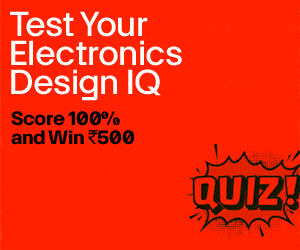Many companies are now working on quantum computers and their applications. Here is a brief introduction to what some of them are doing.
Back in 2018, Google had developed an innovative quantum-based processing solution known as Bristlecone, which is a 72-qubit device that is said to fetch necessary improvement on various options available in the market. Its biggest rival at that time was IBM’s 50-qubit machine. Now, the search engine firm utilises a D-Wave quantum computer developed in their quantum artificial intelligence (AI) lab, which is a joint initiative of NASA, Universities Space Research Association, and Google.
At the IEEE conference in San Francisco, Google showcased a custom-made circuit for quantum computing that is coupled with cryptographic enclosures to strengthen the scaling up of quantum computer systems in the coming years.
Accenture
A few months back, quantum software company 1QBit and Accenture collaborated with Biogent to bring out industry’s first quantum-based molecular comparison application that would significantly improve advanced molecular design to speed up drug discovery for complex neurological conditions such as multiple sclerosis, Alzheimer’s, Parkinson’s and Lou Gehrig’s diseases.
Accenture is now constantly monitoring and supervising the quantum computing ecosystem and partnering with world-famous firms such as Canada-based 1QBit, one of the leading software companies that is committed to craft software and development tools to tackle the world’s colossal computational impediments.
IBM
IBM’s specialty is its attention to the universal gate model where the majority of the world’s leading quantum computing firms are also focusing. In the quantum gate model, qubits are placed into circuits rather than traditional one-and-zero bits, whereas IBM has come up with eight different gate-model prototypes with one option as high as fifty qubits.
Additionally, in 2019, IBM launched its innovative Q System One Solution for commercial quantum research. Apart from that, IBM has also proclaimed its partnership with various leading universities to encourage more research into quantum computing.
Microsoft
Currently, Microsoft is one of the global leaders in quantum computing. Its qualified team commenced the research in 2011. Microsoft is focused on the design aspect of the solutions for the utilisation of a fault-tolerant and scalable computing environment, claims Enterprise Management 360. Then, in early 2014, Microsoft revealed that they had started working and researching the areas of topical computing that aids to perk-up the engineering of quantum states. And by the end of 2017, the company announced unveiling of its development kit for quantum computer programming.
Microsoft’s in-built Azure Quantum is a vast range of quantum services that comprise pre-built solutions to software and quantum hardware, offering developers and customers access to some of the most competitive quantum offerings on the market.
Intel
During the CES trade show of 2018, Intel had proclaimed a major breakthrough by creating a 49-qubit chip known as Tangle Lake. It is said that Intel had invested around 50 million dollars in funding QuTech (a research institute in the Delft University of Technology) back in 2015.
Apart from that, the company had announced its arrival of sophisticated testing tools that are crafted to monitor quantum computers. These modern testing tools help researchers to check the accuracy of quantum technology and also supervise the performance of qubits in a quantum chipset. It is expected that Intel could drive the future of quantum computing in coming years.
Alibaba
The Chinese Academy of Sciences (CAS) and Alibaba Group’s cloud computing subsidiary Aliyun had signed an MoU in Shanghai to co-found Alibaba Quantum Computing Laboratory. The new research facility aimed to modernise the research and study of quantum theory and applications and develop innovative platforms and technologies for information security, connectivity, and computing. From 2015 onwards, the company is investing in quantum computing with focus on various quantum computing applications in numerous sectors such as security, e-commerce, and AI.









